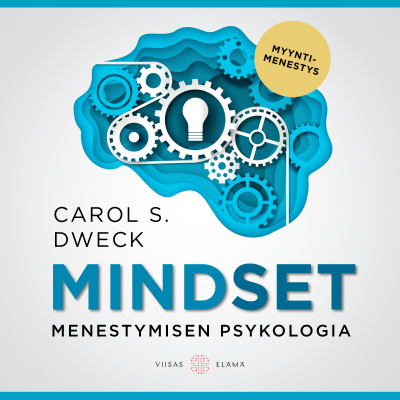
Afford Anything
englanti
Talous & ura
Rajoitettu tarjous
1 kuukausi hintaan 1 €
Sitten 7,99 € / kuukausiPeru milloin tahansa.
- Podimon podcastit
- Lataa offline-käyttöön
Lisää Afford Anything
You can afford anything, but not everything. We make daily decisions about how to spend money, time, energy, focus and attention – and ultimately, our life. How do we make smarter decisions? How do we think from first principles? On the surface, Afford Anything seems like a podcast about money and investing. But under the hood, this is a show about how to think critically, recognize our behavioral blind spots, and make smarter choices. We’re into the psychology of money, and we love metacognition: thinking about how to think. In some episodes, we interview world-class experts: professors, researchers, scientists, authors. In other episodes, we answer your questions, talking through decision-making frameworks and mental models. Want to learn more? Download our free book, Escape, at http://affordanything.com/escape. Hosted by Paula Pant.
Kaikki jaksot
742 jaksot44 Years Old, $2 Million Saved – Why They're Still Hesitant to Downshift
#669: Slade (01:43) - Slade, 44, and his wife plan to downshift careers in the next five to seven years while raising their 11-year-old daughter. They want to know how to reallocate their $685K brokerage account and plan withdrawals to make the transition financially smooth. David (21:50) - David has a high school senior and is deciding how to pay for college. Should he tap the $60K 529 plan now or the $200K 457(b) from his wife’s former employer to maximize tax efficiency and preserve future growth? Graham (37:52) - Graham loved the episode on holding bonds in a taxable account, but he’s curious about a tax-efficient twist. Can an asset swap strategy let you rebalance and pull cash without triggering capital gains? Share this episode with a friend, colleagues, and your family at the holiday part: https://affordanything.com/episode669 [https://affordanything.com/episode669] Learn more about your ad choices. Visit podcastchoices.com/adchoices [https://podcastchoices.com/adchoices]
Why Taking a Year Off Might Be Your Smartest Money Move, with David Bach
#668: We’re joined in-studio by David Bach, bestselling author of The Automatic Millionaire and The Latte Factor. He’s updated his most popular book (over two million copies sold) and this is his last big launch as he heads into retirement. Together, we wrestle with a problem our listeners know well: what happens when you’ve built the habit of saving, investing, optimizing … and then feel weirdly unable to spend. We talk about mini-retirements, the psychology of “spend and enjoy,” and why waiting to touch retirement money can be its own kind of risk. Key Takeaways Think about retirement as a series of deliberate mini-retirements, not one finish line you might reach with less energy than you expected. If you’re a dedicated saver, build a plan for the “spend and enjoy” phase so you do not accidentally optimize away the years you wanted freedom for. Run the numbers on “small” spending habits, not to guilt yourself, but to see which choices actually buy future optionality. Treat withdrawals, benefits, and deadlines as part of the strategy, not a paperwork problem you’ll deal with later. If your finances feel out of reach, anchor yourself with a simple projection and one automated action, momentum beats motivation. Resources and Links David Bach’s website: http://davidbach.com/ David Bach’s books The Automatic Millionaire (updated edition) The Latte Factor Smart Women Finish Rich Chapters Note: Timestamps are approximate and may vary greatly across listening platforms due to dynamically inserted ads. (0:00) Introducing David Bach (4:50) Radical sabbaticals, Florence and rethinking retirement (9:10) Health scares, widowhood stats and enjoying life earlier (11:00) Updating The Automatic Millionaire for 24 million millionaires (15:30) Social Security strategy, RMD parties and claiming earlier (31:30) The latte factor, avocado toast and $10 dollar decisions (33:00) How $10 a day turns into $678,000 (34:20) Oprah behind the scenes, bricks of cash and an audience gasp (47:10) Tiffany Aliche, $75,000 dollars of debt and other success stories (54:25) A $53,000 income couple who retired as multimillionaires (1:25:40) Careers in advising, hiring trends and women advisors (1:28:37) Social Security taxes, new ideas and an eight year tax window (1:41:27) Remembering the “why,” values based choices and using money well Share this episode with a friend, colleagues, and the "automatitions" in your life: https://affordanything.com/episode668 [https://affordanything.com/episode668] Learn more about your ad choices. Visit podcastchoices.com/adchoices [https://podcastchoices.com/adchoices]
Should You Ever Get a 50 Year Mortgage? — with Dr. Karsten Jeske
#667: Home prices have outpaced wages for more than a decade, and first-time buyers are stretching further every year. Now a new idea is entering the conversation, the 50-year mortgage. It promises lower monthly payments, yet it reshapes everything from equity growth to long-term risk. In this episode we sit down with Karsten Jeske, PhD, CFA from Early Retirement Now, a former Federal Reserve economist known for forensic financial modeling. Together we walk through when a 50-year mortgage might make sense, when it clearly does not, and why the math is rarely as simple as “higher payment versus lower payment.” We also dig into how ultra-long mortgages could push home prices even higher, and what this means for today’s buyers and tomorrow’s retirees. If you’ve wondered whether extended loan terms offer real affordability or just disguise the cost, this conversation gives you a clearer lens. Key Takeaways Why stretching to a 50-year mortgage can look affordable on paper yet leave you with far slower equity growth in the years that matter most. The few cases where a longer mortgage term can support a deliberate strategy, such as freeing cash flow to invest, and why this only works for certain borrowers. How inflation, appreciation, and opportunity cost change the “true” math behind 30-year versus 50-year loans. Why ultra-long mortgages may raise home prices more than they help buyers and what this means for generational wealth. How late-life mortgage decisions, downsizing, and step-up in basis reshape your legacy far more than the length of the loan itself. Resources and Links Early Retirement Now blog, Karsten’s research and mortgage modeling. Chapters Note: Timestamps are approximate and may vary greatly across listening platforms due to dynamically inserted ads. (00:00) 50-year mortgage debate begins (02:52) Karsten says it expands options for sophisticated investors (05:42) Paula focuses on owner-occupants who can't afford houses (11:03) Equity difference: $80K vs $20K after 10 years (18:26) Lower payments could fund other investments (25:17) Lenders package mortgages for institutional investors (29:18) US doesn't issue 100-year bonds despite stability (34:00) Small term premiums create huge returns (43:31) Paying more interest isn't automatically bad (48:08) First-time buyers now average age 40 (56:08) Geographic arbitrage enables mortgage payoff (01:00:20) 50-year mortgages could inflate home prices (01:04:51) Supply constraints drive housing affordability crisis (01:07:29) Fed might pause rate cuts in December https://affordanything.com/episode667 Learn more about your ad choices. Visit podcastchoices.com/adchoices [https://podcastchoices.com/adchoices]
First Friday: The Strange Economics of Feeling Poor While Spending More Description:
#666: In this First Friday economic update, we explore the paradox defining our current economy: record-breaking retail numbers alongside plummeting consumer confidence. In this First Friday economic update, we explore the paradox defining our current economy: we're spending more than ever, while feeling worse about money than we have in years. The Bureau of Labor Statistics hasn't released jobs data for two consecutive months. The Federal Reserve must make a critical interest rate decision flying blind. Meanwhile, private sector data reveals troubling trends. Small businesses are hemorrhaging jobs while discount chains like Dollar General see their stock prices soar 44%. Americans are spending differently this holiday season. They're shopping earlier, using AI to find deals, and turning to buy-now-pay-later options. Households are spending less than last year, yet total spending increases because more people are participating. This K-shaped recovery benefits luxury retailers and bargain stores while crushing the middle market. We also cover essential year-end financial moves. From maximizing retirement contributions to tax-loss harvesting strategies, we help you navigate your personal finances amid economic uncertainty. The disconnect between what the numbers say – and how people feel – reveals deeper truths about an economy that's technically growing while leaving many behind. Timestamps: Note: Timestamps will vary on individual listening devices based on dynamic advertising run times. The provided timestamps are approximate and may be several minutes off due to changing ad lengths. (0:00) Spotify Wrapped and podcast listener data (2:05) Jobs report missing, BLS delays (5:01) ADP shows 32,000 job losses (8:00) Youth unemployment over 10% (10:32) Fed meeting without data (12:24) Mortgage rates might drop below 6% (20:06) Holiday spending hits $1 trillion (23:43) Consumers spend less individually (26:36) Discount stores outperform market (28:29) Shopping starts in October now (30:22) AI helps holiday shopping (36:09) Giving Tuesday up 11% (38:28) Year-end money moves (45:00) Charity and gift tax limits Share this episode with a friend, colleagues, and your family: https://affordanything.com/episode666 [https://affordanything.com/episode666] Learn more about your ad choices. Visit podcastchoices.com/adchoices [https://podcastchoices.com/adchoices]
Q&A: How Much Insurance Is Enough When You’re Protecting Your Wealth
#665: If you’ve ever stared at an insurance quote and wondered, “Is this really worth it?”, you’re not alone. Liability and umbrella policies can feel like an expensive mystery, especially when your net worth is growing and your risks are shifting. In today’s episode, we dig into a listener’s dilemma about soaring liability and umbrella insurance costs, and we explore how to think clearly about protection, exposure, and the parts of your portfolio that may already be shielded. Along the way, we unpack how shifting household risks, driver ages, and asset location change the insurance strategy year by year. From there, we take questions about Roth choices, future tax brackets, and whether it’s worth giving up investment flexibility to build a stronger tax triangle. These conversations get to the heart of how we balance risk, taxes, and long-term planning in the FI journey. Listener Questions in This Episode Andy asks: How can I protect my $2 million net worth without paying nearly $950 a month for increased auto, home, and umbrella coverage, especially with a teenage driver in the mix? (01:47) Mike asks: Given our high current tax bracket and expected lower tax rate in retirement, does contributing to a Roth still make sense for us? (25:50) Cindy asks: Should I move my rollover IRA into my new 401(k) so I can start doing backdoor Roth contributions, even if the investment choices are more limited? (39:47) Key Takeaways * Sometimes the question isn’t “umbrella or nothing,” it’s “what risk am I truly trying to insure, and for how long,” especially when a teenage driver temporarily changes the household risk profile. * You already may have more asset protection than you think. Retirement accounts and primary residences often carry their own layers of protection, which influences how much liability insurance you actually need. * The Roth decision hinges less on math in isolation and more on your likely future earnings, work style, and appetite for locking in today’s tax rates. * Building a balanced tax triangle gives you flexibility later, especially when future tax rates are unknowable and retirement timing is uncertain. * Backdoor Roths can be powerful, but only when the tradeoff between investment choice and long-term tax flexibility makes sense for your goals and timeline. Related Episode: Episode 649: Umbrella insurance deep dive [https://affordanything.com/episode649] Chapters Note: Timestamps are approximate and may vary greatly across listening platforms due to dynamically inserted ads. (00:00) Offense versus defense and setting up today’s questions (01:47) Andy asks about protecting a $2 million net worth (12:00) What’s already protected and how coverage layers work (17:00) Managing short-term risk when a teenager starts driving (29:50) Mike asks whether high earners should prioritize Roth contributions (35:07) How career trajectory and future tax rates shape Roth logic ( 45:54) Building a balanced tax triangle (47:47) Cindy asks about using a backdoor Roth to shift her tax triangle ( 52:10) Tradeoffs of moving an IRA into a 401k (54:06) How long Roth dollars need to grow to matter Have a question for Paula and Joe? Call it in at https://affordanything.com/voicemail [https://affordanything.com/voicemail] Share this episode with a friend, colleagues, your tax advisor: https://affordanything.com/episode665 [https://affordanything.com/episode665] Learn more about your ad choices. Visit podcastchoices.com/adchoices [https://podcastchoices.com/adchoices]
Valitse tilauksesi
Rajoitettu tarjous
Premium
Podimon podcastit
Lataa offline-käyttöön
Peru milloin tahansa
1 kuukausi hintaan 1 €
Sitten 7,99 € / kuukausi
Premium
20 tuntia äänikirjoja
Podimon podcastit
Lataa offline-käyttöön
Peru milloin tahansa
30 vrk ilmainen kokeilu
Sitten 9,99 € / month
Premium
100 tuntia äänikirjoja
Podimon podcastit
Lataa offline-käyttöön
Peru milloin tahansa
30 vrk ilmainen kokeilu
Sitten 19,99 € / month
1 kuukausi hintaan 1 €. Sitten 7,99 € / kuukausi. Peru milloin tahansa.

































